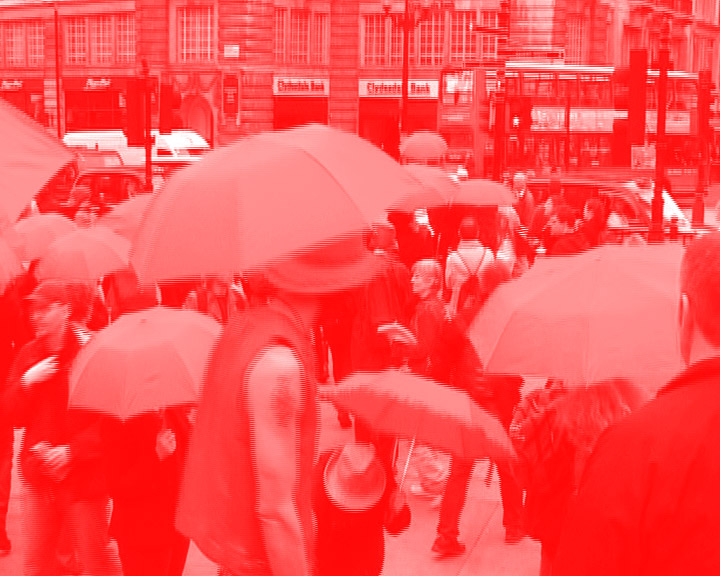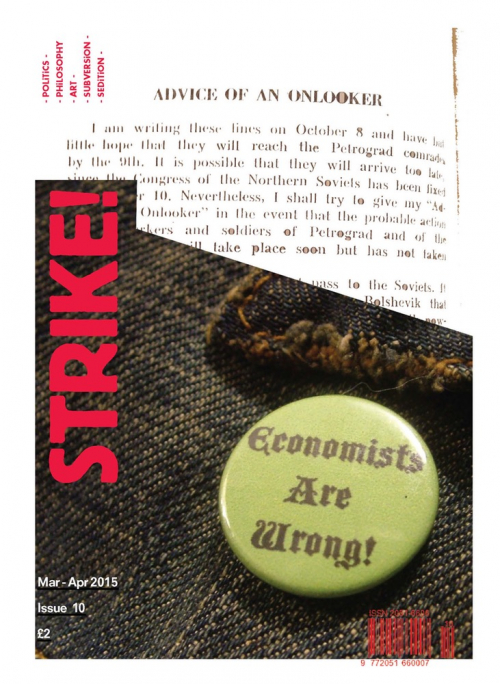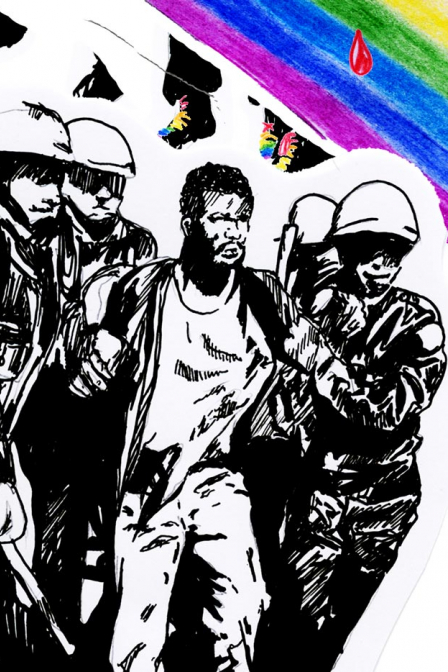Save Us From Our Saviours: Legalise it

Say sex work to anyone, and most people will have an opinion. Or at the very least, a feeling about sex work. And despite not being sex workers themselves, or ever having talked to a sex worker. Sex work can be an emotive topic, because sex can be an emotive topic. And because many people have sex, people feel they are an authority on sex work.
Whatever your feelings about sex work, or more specifically, women doing sex work, there are material realities that the moralising and ideological speeches conveniently neglect. Poverty and capitalism create the circumstances in which many marginalised groups of people do sex work. But denouncing sex workers and discussing the taboos of sex is much more fun, titillating and, essentially, much easier than the hard work of organising structurally against poverty, economic injustice and capitalism.
What people often don't talk about when discussing sex work, is money. More specifically capitalism and poverty. The main reason anyone does any kind of work, is for money. And navigating paid work is mostly unavoidable within our capitalist society.
Those factory jobs, dish-washing, cooking, queer youth work, fruit picking, care work jobs: I did them all for the money. Sometimes I enjoyed the work, sometimes I really hated it. Luckily, whether I loved, hated or was simply bored by jobs had no impact on my rights as a worker, or my working conditions. That's not how it goes for sex work.
When workers in factories, supermarkets, offices, mines, hospitals and universities campaign for workers rights and press for better and safer working conditions, you don't see feminists, activists, and anti-capitalists denouncing and dismissing them for condoning the exploitation of workers and propping up capitalism. Yet the same doesn't apply for sex workers when we campaign for conditions, policy and legislation that would help to make our jobs less dangerous.
That's because sex work isn't seen as work. Part of that is because it's largely women's work, and women's work within patriarchal society has a long history of being undervalued. Another part of sex work not being seen as work is to do with whorephobia and the rules of what women are and aren't allowed to do with their bodies. Women can have sex in marriage and even for pleasure (in many places) these days—but not for money. Notice when people are anti-sex work, it tends to be anti-women-doing-sex-work.
The other reason sex work isn't accepted as mere work, is because of a sexist myth and belief surrounding penetration. A sexist and, sadly too often, feminist argument, is that sex work, when women do it, is inherently oppressive and inherently degrading, because penetration is believed to be inherently degrading. This sexist belief dismisses the person being penetrated as always being inferior, while the person penetrating is always seen to be superior. It's a belief that shows itself in colonial assumptions—virgin foreign lands for the taking, but homelands maintained intact through immigration policy and border control. It's also a belief expressed as homophobic and transphobic hegemonic masculinity—masculine bodies are sealed and impenetrable, and the masculine bodies that are penetrated are ranked lower, marginalised and punished. This totalising view of sex work as inherently oppressive and degrading erases and ignores the myriad complex ways sex workers critically navigate the violent intersections of nation state border and white supremacist, colonial, patriarchal, het- and cis-centric capitalism.
This belief is hypocritically not applied to other complex sites where structural oppression exists and we all have no choice but to navigate. It's also a belief that prioritises a meta abstraction of sex work as violence against all women, over the real acts of violence against women who are sex workers. This feminist gymnastics erases and equates the actual murder, violence, profiling, incarceration, detention and infantilisation of sex workers—done by the police, violent clients, border control, state and rescue agencies—as no different to symbolic or conceptual violence against all women. The sexist and whorephobic belief that sex work (when done by women) is violence against all women, willfully ignores the material realities of the violence, stigma, discrimination and threat faced by sex workers.
On 17 December it was International Day to End Violence Against Sex Workers. At a vigil in Soho, London, we read 144 names from a list. A large proportion of those names were trans women of colour. Many more were trans women and women of colour. Many were migrants, many poor, many without official citizen status. Those 144 names were sex workers around the world, in one year, who had been murdered while doing their jobs. Jobs they did to feed their kids, support their families, pay their bills (be they rent or food or medical). They were killed because it is acceptable to kill sex workers. Because whorephobia says it's acceptable to kill women who transgress gender and sexual rules. Whether that's being trans, or having sex for money, or both.
If you want to support people to leave sex work; if you want to expose instances of actual trafficking (and not the xenophobic cliché of ‘You are from eastern Europe so you must have been trafficked’); if you want to make sex work safer for people doing it, then poverty, economic injustice, imperial borders, state and administrative violence, racism, transphobia and patriarchy must be addressed. Those are some of the foundations of exploitation and marginalisation that create the environment in which many people choose to do sex work, instead of busting their back and their health over an insecure minimum wage job—if they even have access to minimum wage jobs. And, because all those things are structural, long-term problems to organise against, in the meantime, the decriminalisation of sex work is one of the main things that will aid in keeping sex workers alive and making our workplaces safer. Blaming sex workers, specifically sex workers who are women, for patriarchy, sexism and the violence against them, is not only simplistically lazy, but injurious and inaccurate. That kind of rhetoric is of the same sexist whorephobia that allows a man recently convicted of killing many sex workers to admit that he chose and targeted sex workers because no one cares about them.
Currently in the UK, one of the main things sex workers do to make our work safer is illegal. If we work with another sex worker, we can both be prosecuted for pimping or exploiting each other. If a landlord finds out that we work from the place we are renting from them, the landlord can be prosecuted either for brothel keeping or owning a property where ‘immoral use’ is taking place. When forty police officers in full riot gear raided parlours in Soho, they brought camera crews along. Women were dragged out, sometimes semi clothed, money taken, apartments trashed and migrant women taken away to immigration centres. Women were paternalistically threatened, with cops saying they would tell their mothers what they did for a living. The original reason stated for the raids was to check for trafficking victims. When no victims were found, the reason was changed to be looking for stolen goods and drugs. Nothing of significance was found. The parlours raided also just happen to be buildings marked for the development of luxury flats. And a landlord of one of the raided premises was pressured with prosecution of ‘immoral use of a property’ if he didn't evict his tenants.
The decriminalisation of sex work, as shown in New Zealand, where sex work has been decriminalised since 2003, makes sex work safer and allows trafficking and other forms of coercion and exploitation to be more easily uncovered and addressed. Recently in New Zealand, a woman working in a brothel brought charges of sexual harassment against her boss. She was awarded $20,000 in compensation. This was because her workplace was recognised as a workplace, and sexual harassment is a breach of employment law and human rights. This could not have happened in a society where sex work is criminalised.
The decriminalisation of sex work in the UK would mean that sex workers could work together and report violence without fear of arrest. We could access health services without discrimination.
It would mean recognition that sex workers are workers with rights, to enable us to fight for better working conditions and wages. It would restrict the Police and the Border Agency from harassing sex workers. It would aid in better-protecting immigrant sex workers from being targeted for raids and deportation. It would recognise that sex workers, a huge proportion of whom are mothers, contribute to the survival of families and communities. Decriminalisation would end criminal records, which bar access to other jobs. It would go some way towards reducing police corruption, as well as enabling sex workers to report wrongdoings by the police and violent clients.
Whatever your moral or ideological feelings and opinions are on sex work, the lives and safety and voices of sex workers should come first.

Get it here


